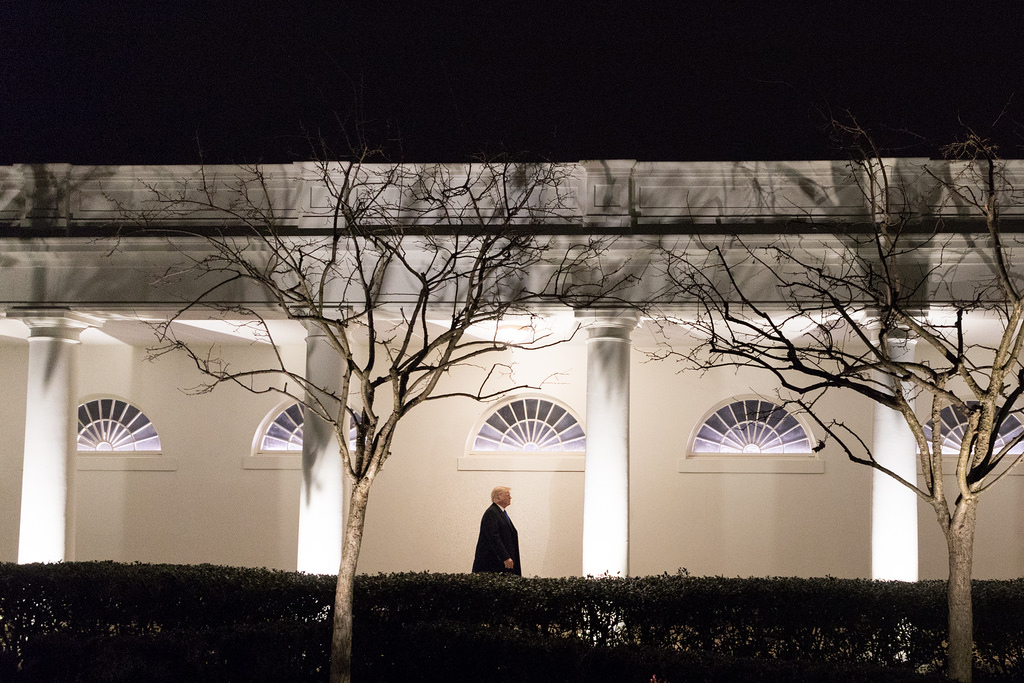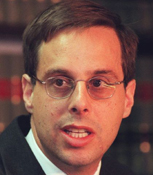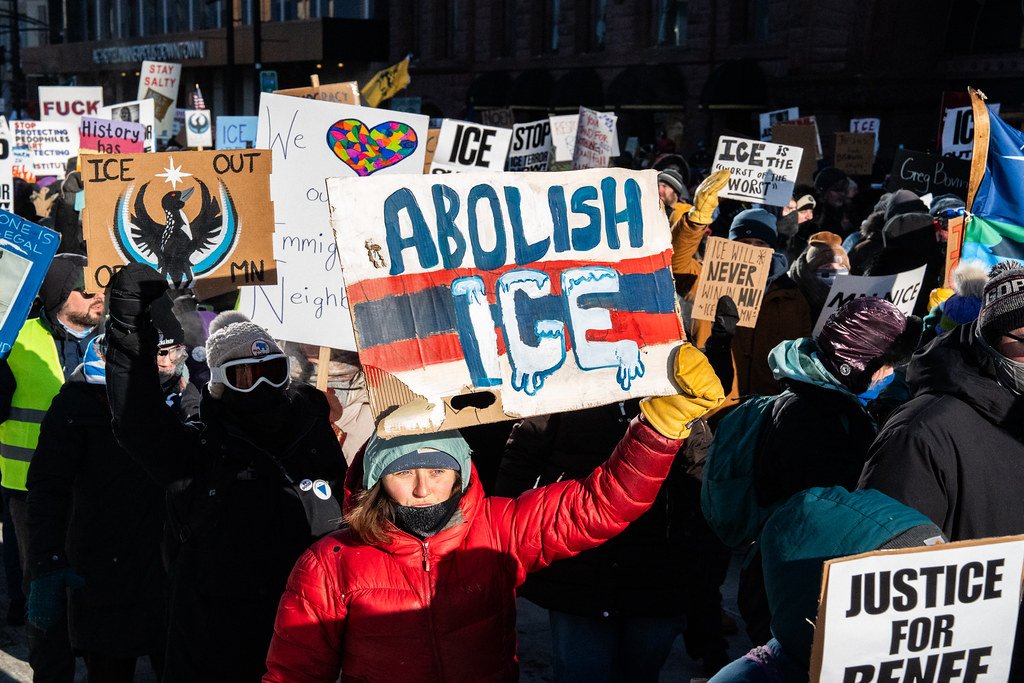Don't Expect Trump to Testify Anytime Soon
Multiple news organizations have reported that Special Counsel Robert Mueller’s “team could interview Trump soon on some limited portion of questions—possibly

Multiple news organizations have reported that Special Counsel Robert Mueller’s “team could interview Trump soon on some limited portion of questions—possibly within the next several weeks.”
Don’t believe it.
Trump’s two-word mantra when asked about the probe is “no collusion,” as if that were the only charge Mueller is investigating. All indications, however, are that Mueller wants to question Trump about the obstruction of justice charges growing out of Trump’s attempt to scuttle the investigation of Michael Flynn and his subsequent discharge of FBI Director James Comey.
Mueller has spoken to all the principals within the relatively narrow-gauge focus of the obstruction charges and has a full download from the two most important of them, Comey and Flynn. Not so for the charges of conspiracy with Russian officials, which is at mid-game at best, or money laundering, which is barely underway.
That is not to say that the special counsel won’t seek to question the president about those topics as well. Ideally, Mueller would await the full maturation of those investigations, but he might calculate that, as a practical matter, he will only get one clean shot at Trump. What’s important, however, is that he will have Trump dead in his sights on the obstruction charges.
Testimony under oath about the obstruction charges would be a bloodbath for Trump. The president has told serial lies about his conversations with Comey, whose account is in any case backed by contemporaneous evidence and, it would appear, the testimony of Trump-camp insiders such as Reince Priebus.
Mueller’s team will meticulously serve up each of those lies back to Trump, forcing him either to disavow them (adding to the obstruction case) or recommit to them (adding perjury counts to Mueller’s ledger). And Trump is arrogant and easily goaded, making him a prosecutor’s dream.
So Team Trump will fight hard for a more informal interaction, such as written questions or a limited, unsworn interview outside of the grand jury. It is unlikely that any experienced prosecutor would ever acquiesce to such a loose format, even for the testimony of a sitting president; Mueller certainly will not. He may bend on details such as length and location of the interview, but not on the bedrock features of live testimony under oath. There, he would draw a line and threaten to seek a subpoena to force Trump to testify.
That would bring Trump to his first major decision point. He could capitulate to testimony on Mueller’s terms, mount a legal challenge to the subpoena, or try to blow the whole thing up now, for example, by trying to fire Mueller.
The prevailing assumption has been that the legal landscape is straightforward and that the courts would make quick work of rejecting a challenge to the subpoena. Commentators point to the precedents of President Clinton’s testimony during the Starr investigation, as well as testimony by Presidents Ford and Reagan in civil cases.
It is true that at the end of the day, Mueller’s subpoena likely would be upheld. Two unanimous Supreme Court decisions, United States v. Nixon (the president must provide documentary evidence in response to a subpoena) and Clinton v. Jones (the president must sit for a civil deposition where he is a defendant) lead to that conclusion.
Once again, however, it’s not so simple.
As a threshold matter, Team Trump can calculate that a ruling from the Supreme Court—which will have to settle the matter—will take at least several months, during which Mueller’s obstruction investigation will be effectively sidelined.
But besides buying time, a legal challenge would be more than defensible. In fact, no sitting president has ever been forced to provide testimony as a target of a criminal investigation.
People may forget that Clinton was not legally compelled to testify. Independent Counsel Ken Starr served him with a subpoena (a first in itself), but the parties then worked out a deal and the subpoena was withdrawn, leaving his appearance “voluntary” in legal terms.
Even then, Clinton appeared contrary to the counsel of his advisers, who urged him to challenge the subpoena as an unconstitutional encroachment on the president. But Clinton decided that it was a political imperative to testify. He did so under special conditions before the grand jury and emerged having added perjury to the counts of impeachment against him.
And the Nixon case involved a lesser encroachment on presidential authority, because the subpoena called for the production of records, not live testimony.
(The other presidential appearances in civil cases don’t really apply, and even there, the record is checkered: Thomas Jefferson ignored a subpoena from Aaron Burr to appear for the defense in Burr’s treason trial.)
Eventually Nixon and Clinton were pushed into corners from which they could not escape. Assume the day comes when Trump has no more room to maneuver. The courts have ruled against him, the subpoena has been upheld, the grand jury has assembled. Trump still has one more thing going for him: his apparent contempt for the Constitution. Clinton, like Nixon, was ultimately conscious of the institutional legacy of office; Trump seems indifferent to, even derisive of, such high-minded concerns, and his political base consistently rewards him for his churlishness.
Thus, one cannot assume that, if his presidency were on the line, Trump would respond in a presidential way to a court order to testify. His political instincts are the opposite: Create a big mess, blame others, and see what happens.
And there would be a number of options for Trump to upend the sandbox. He could discharge Mueller and face the firestorm. He could take the Fifth Amendment but posture as if he were doing it only out of contempt for the probe. He could perhaps agree to testify but basically filibuster and treat the whole proceeding as a “witch hunt” kangaroo court. That might force the unseemly prospect of Mueller’s bringing a contempt proceeding against him, which would raise new unresolved legal issues. Even a “wag the dog” strategy could not be counted as off the table.
Trump is the chaos president. Trying to anticipate his reaction, especially when he is facing a mortal challenge to his presidency, is like trying to predict the movements of a tropical storm. But there is one takeaway point: Do not count on his raising his right hand any time soon.



.png?sfvrsn=48e6afb0_5)

